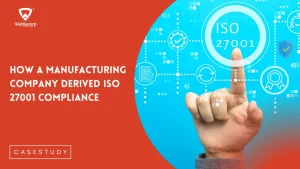India’s Transforming Data Governance, Why All Organizations Processing Digital Personal Data Must Comply
The importance of the act and rules
The DPDP Rules are crucial in making the DPDP Act come alive, by creating clear and actionable expectations for organizations based on its broad principles. Companies can obtain a clear roadmap for compliance with detailed requirements on consent, notices, retention, governance, security, logging, and significant data fiduciary obligations set out by them. With fixed implementation timelines now in place, organizations that delay preparation face genuine regulatory and operational risks. India has established its first comprehensive, cross-sector personal data protection framework with these Rules, making timely compliance not only a legal duty but also crucial for building trust and accountability in the digital ecosystem.
Understanding Key Concepts
The Act defines personal data as any information that can identify an individual, and digital personal data as such data in electronic form. The individual is the Data Principal, while the entity deciding how data is used is the Data Fiduciary. A person or organization such as vendors, cloud providers etc. processing data on behalf of a Data Fiduciary are Data Processors. The Act’s main focus is on valid consent, which must be free, specific, informed, straightforward and provided through clear affirmative action. The Act also introduces Consent Managers, which serve as neutral platforms for individuals to give or withdraw consent, and Significant Data Fiduciaries (SDFs), which are large or high-risk entities that must comply with more obligations.
Applicability of the Act
Any organization or individual that processes digital personal data, regardless of whether it is collected directly in digital form or offline and later digitized, is covered by the DPDP Act. The Act covers processing that is either fully or partially automated, which includes the storage, analysis, sharing, or deletion of personal data. The law is applicable to processing activities conducted in India, and it also applies to organizations located outside India if they provide goods or services to individuals in India or handle their personal data.
Core Compliance Requirements
- Consent & Privacy Notice (Rule 3)
It is necessary for organizations to provide a clear, multi-lingual, standalone privacy notice that outlines what data is collected for what purpose, how rights can be exercised, and how to file a complaint. Consent must be specific to the purpose and easily withdrawable. Individuals should clearly understand what data is being collected, for what purpose, and must be able to choose without pressure or hidden conditions. Parental consent is required for processing children’s data
- Duties of Data Fiduciaries & Processors
Data fiduciaries are responsible for all processing, including what their processors do. They must collect only the necessary data and keep it accurate. Maintain transparent contact channels for users. Implement strong security safeguards (encryption, access controls, monitoring). Ensure that processors follow the same safeguards through written contracts.
- Retention, Deletion & Accuracy (Rule 8)
Indefinite data storage is not allowed. Unless there is a legal requirement for retention, organizations must delete the data once the purpose is completed. Notification is required for individuals before scheduled deletion.
- Security & Breach Reporting (Rules 6 & 7)
Implementing appropriate security safeguards, including encryption, multi-factor authentication, access controls, and other risk-based measures, to ensure that personal data is protected against unauthorized access or misuse. In case of a personal data breach, the organization must give a clear notice to the Data Protection Board and all affected individuals. The lack of reporting or security of data can lead to severe penalties. Processing logs must be kept for at least one year.
- Consent Managers (Rule 4)
Businesses must support consent given by registered consent managers. Consent managers ensure that the platforms are transparent and trustworthy, making it easy for individuals to give, track, and withdraw their consent.
- Significant Data Fiduciaries (Rule 13)
SDFs, typically those handling large-scale or sensitive data, must conduct regular independent audits, privacy impact assessments, and follow stricter governance controls.
- Cross-Border Data Transfers (Rule 15)
Data transfers outside India are permitted unless the government restricts specific countries. Businesses must track notifications and ensure contracts cover privacy obligations. The Central Government can grant exemptions, notify SDFs, block or restrict data disclosures, and issue corrective directions with necessary safeguards or conditions on personal data processing.
Compliance Timeline
- Immediate: Establishment of the Data Protection Board and foundational provisions.
- +12 months: Consent-management system must be operational.
+18 months (By May 2027): Full compliance.






